New to EVs?
Here's what every new electric vehicle driver needs to know about powering their car at home.
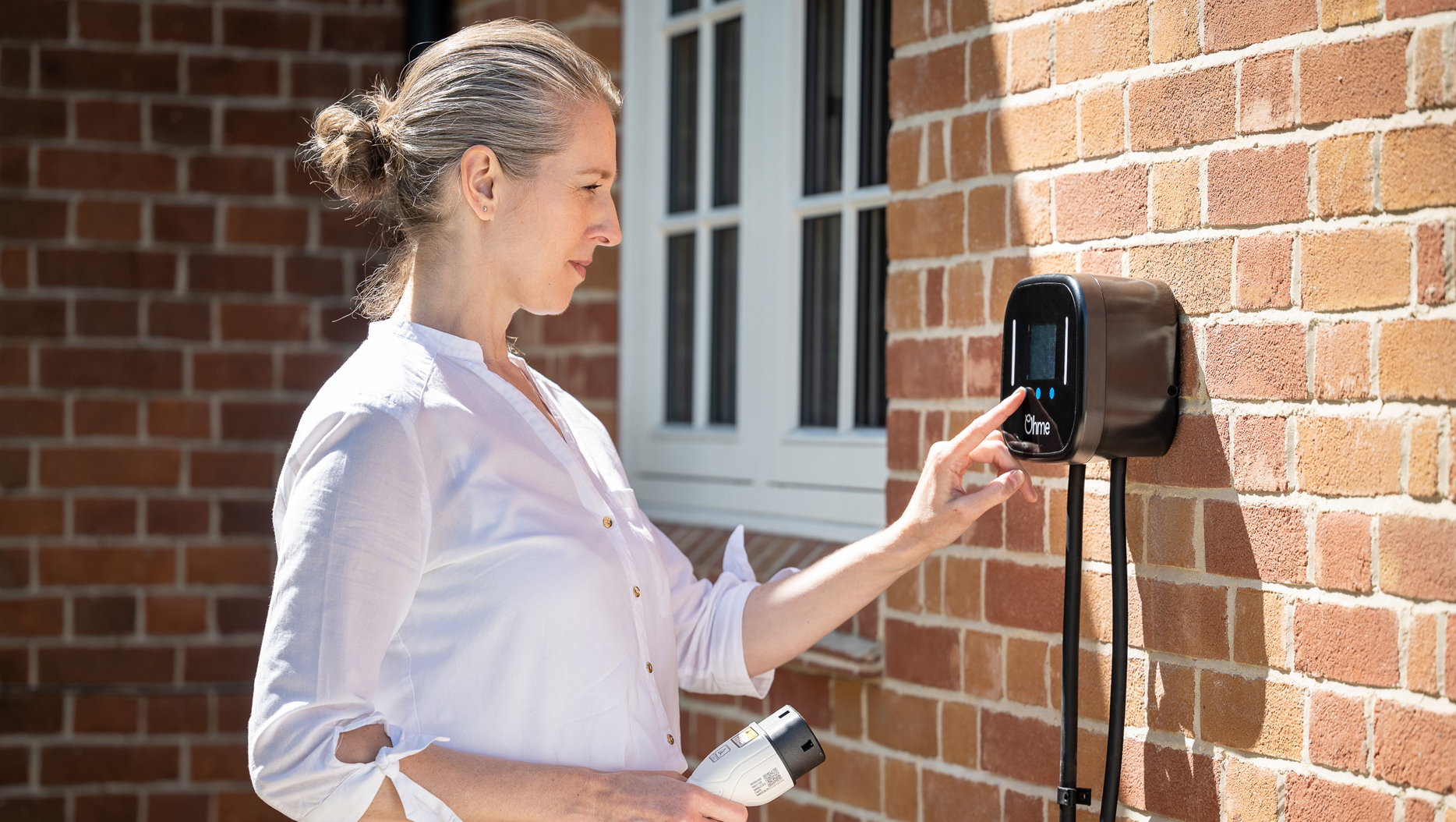
First things first: What’s a home charger?
A home charger is a compact unit designed to let EV drivers power their electric car from the comfort of their own home. It’s cheaper and quicker than a trip to a public destination to top up your car.
What is:
Fast charging?
Fast chargers, ranging anywhere from 7kW to 22kW, are the most common type of home EV charger. They are ideal for when your car is parked up for a few hours – such as when you’re home, busy at work, or going on a shopping spree.
What is:
Rapid charging?
Rapid chargers, ranging between 50kW and 350kW, are your speed ticket to topping up your car while you’re on the road. Note that they are not a snug fit for a regular home due to their higher power outputs – you will typically find them stationed at service stations and along highways.
The different types of chargers
Tethered
A tethered charger comes with a cable permanently attached so it’s always on hand for whenever you need to start a new charging session. No more cable hunts or boot excavations – it’s your charging sidekick that’s always at the ready.
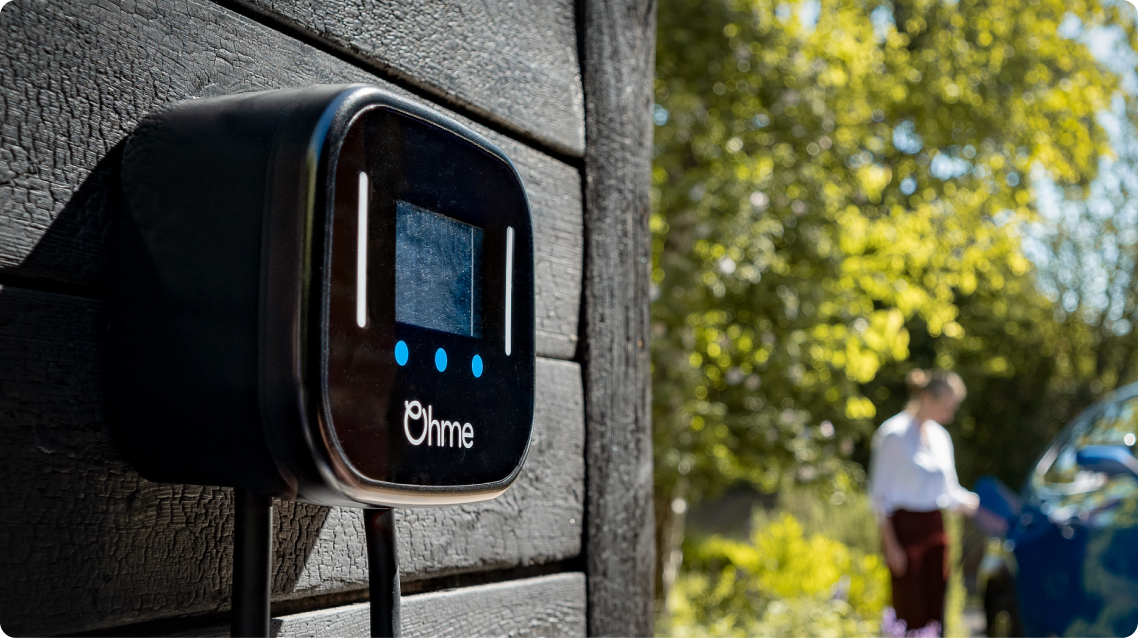
Ohme Home Pro
Untethered
An untethered charger doesn’t come with a cable attached and is your universal charging companion. Whether your EV rocks a Type 1 or Type 2 connector, this charger is all-inclusive. Just grab your trusty charging cable (usually supplied with your car) and plug-in effortlessly.
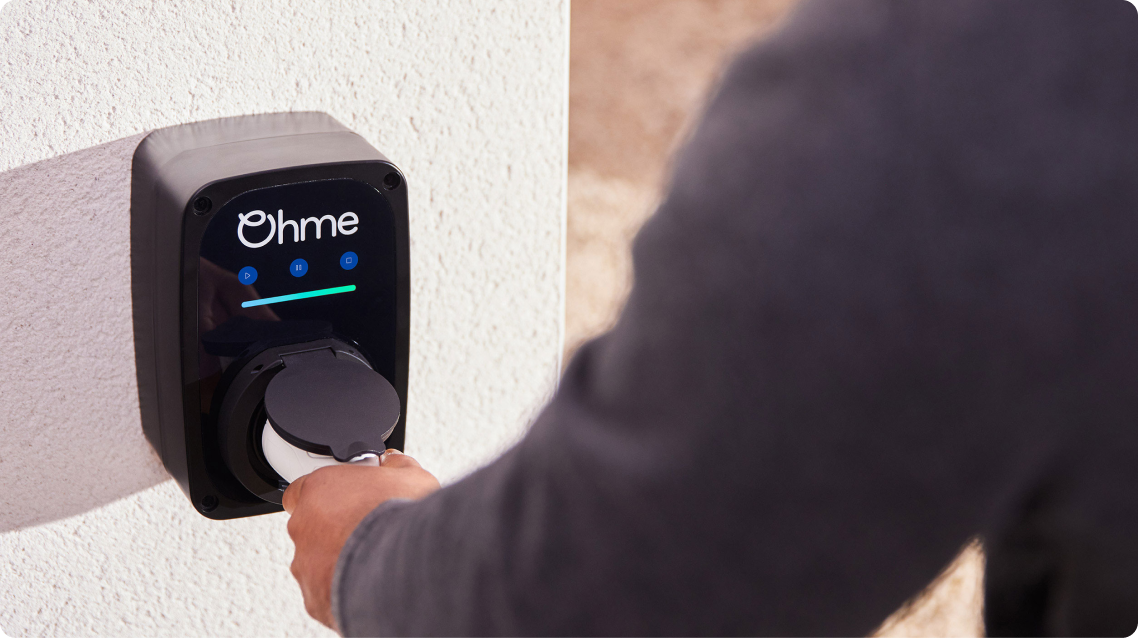
Ohme ePod
Charging at home 101

What does kWh mean?
kWh stands for kilowatt hour and is the magic number that reveals how large your car battery is as well as its storage capacity. To put it simply, it’s like a fuel tank size for electricity.
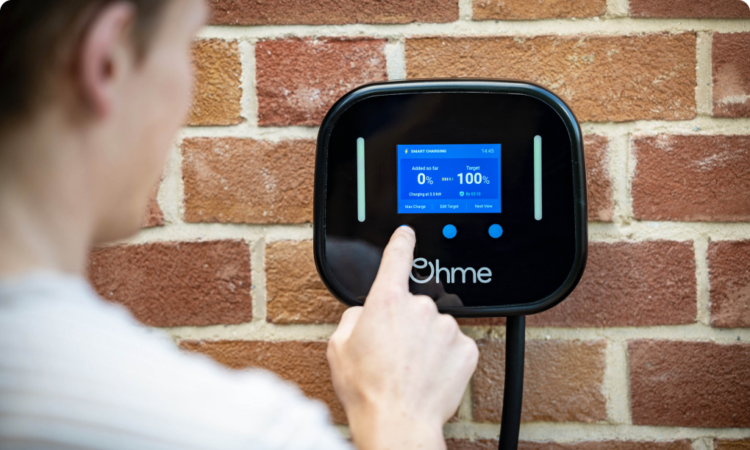
What kW charger do I need?
Opt for a 7.4kW charger if possible – it safely charges your car 8x faster than a 3-pin socket. Most homes have a 1-phase power supply, making a 7.4kW charger the perfect match.
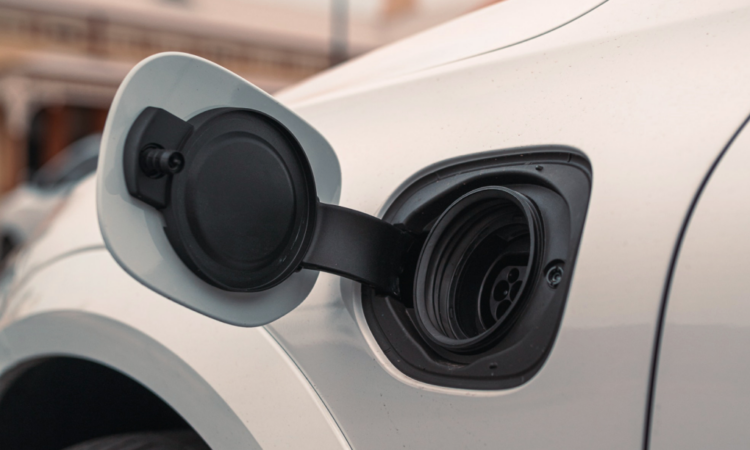
When should I charge?
Want your car battery to go the distance? Aim to keep its charge between 20-80%. Dips and surges are inevitable, sticking to this range daily can help extend battery life.
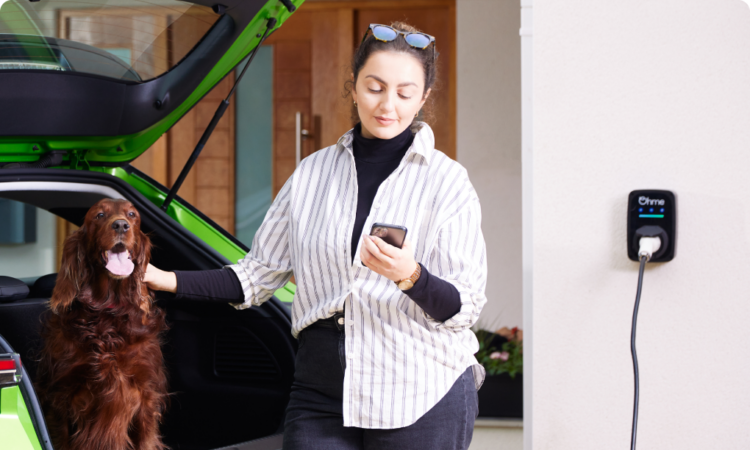
How much does it cost?
With lower costs per mile than petrol, charging your car at home is not only eco-smart but also budget-savvy. Your savings will vary based on your car model and your energy tariff.

How long does it take?
Charging time depends on battery size, battery charging speed, and charger speed. On average, a 7.4kW charger takes about 11 hours to fully recharge your car.
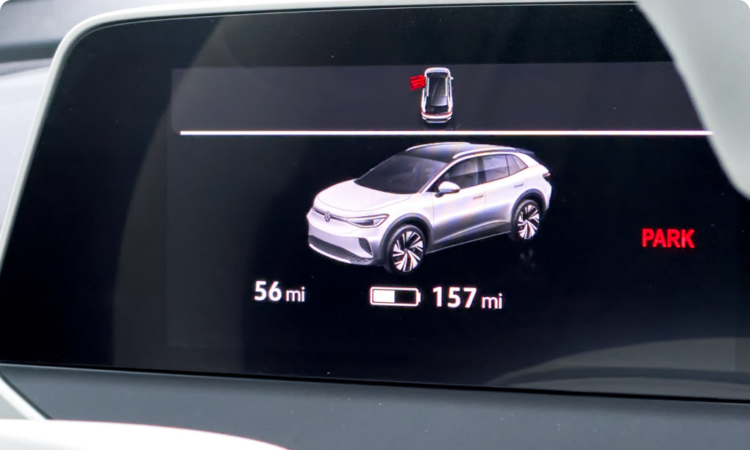
What is vehicle range?
The range is the distance your electric car can cover on a single full charge – imagine it as your vehicle’s adventure zone before the next power-up.
How to work out EV charging times
Here’s the equation to work out your car’s average charge time:
Battery size ÷ Charger speed = Charging time
So, for example:
A 62kWh Volkswagen ID.3 charged by a 7.4kW charger (62 ÷ 7.4) = just over 8 hours to charge.
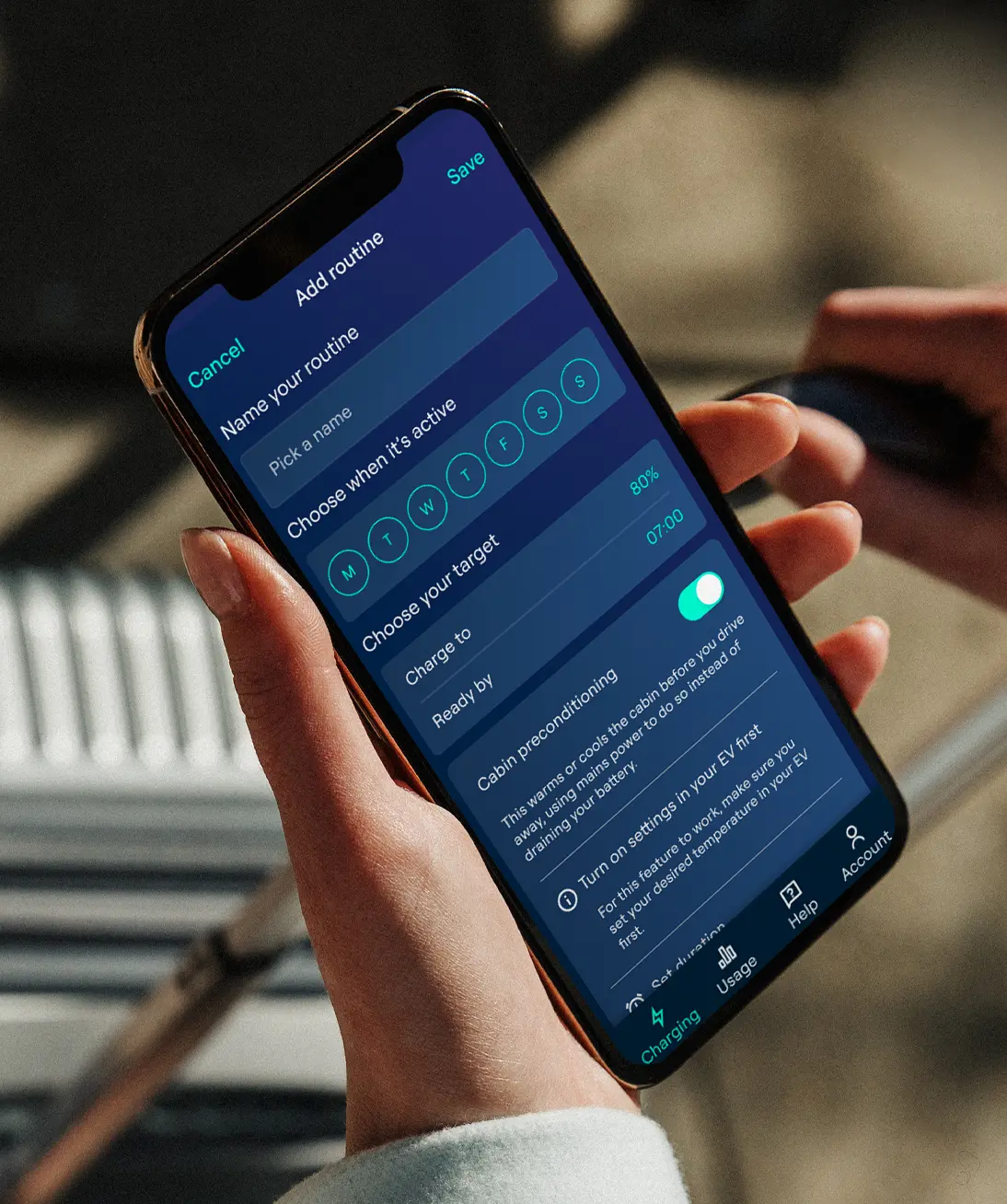
Smart charging in a nutshell
What is smart charging?
It’s a technology system that uses data connections to find the best charging windows. With Ohme smart chargers, your car chats with us and the grid, working out when it’s greener and cheaper to charge.
Smartphone control
With the Ohme app, you can control your charger at the click of a button. You can set up routines, schedule one-off charging sessions, apply a price cap (price/kWh), and track your energy costs and consumption effortlessly.
Grid balancing
Our tech adjusts energy intake according to demand peaks and lows, enabling peak shaving. Peak shaving manages demand spikes to ease grid stress. Energy suppliers often offer cheaper electricity during off-peak hours to achieve this.